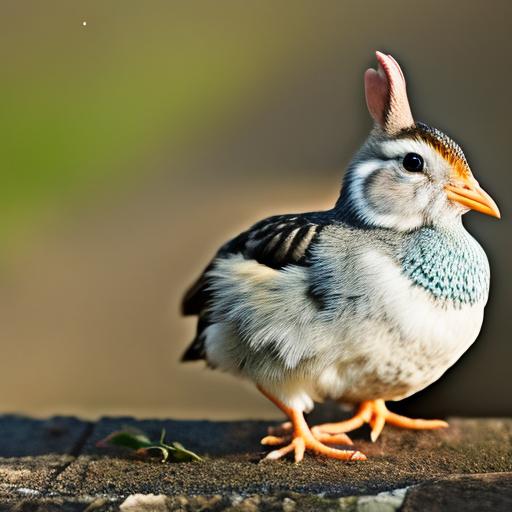Keeping chickens and rabbits together may seem like an unusual idea, but it can actually be a beneficial and harmonious arrangement. Both chickens and rabbits have unique qualities that can complement each other, making them ideal companions in a shared living space. In this article, we will explore the compatibility of chickens and rabbits, the benefits of co-habitation, and provide tips for successfully keeping them together.
Key Takeaways
- Chickens and rabbits can be kept together in the same space.
- Keeping chickens and rabbits together can provide benefits such as pest control and fertilizer production.
- Preparing the chicken coop for rabbits involves providing hiding spaces and separate feeding areas.
- Choosing compatible breeds of chickens and rabbits is important for successful co-habitation.
- Maintaining hygiene and keeping predators away are crucial for the health and safety of both animals.
Understanding the Compatibility of Chickens and Rabbits
Chickens and rabbits can live together peacefully because they have different natural behaviors that do not conflict with each other. Chickens are ground-dwelling birds that scratch and peck at the ground, while rabbits are herbivorous animals that graze on grass and plants. These behaviors are complementary, as chickens can help control pests in the area by eating insects and small rodents, while rabbits can help keep the grass trimmed by grazing on it.
Additionally, chickens and rabbits have different social structures. Chickens are flock animals that establish a pecking order within their group, while rabbits are more solitary animals that establish territories. This means that they are less likely to compete for resources or territory, reducing the chances of aggression or conflict between them.
Benefits of Keeping Chickens and Rabbits Together
There are several benefits to keeping chickens and rabbits together. One of the main advantages is pest control. Chickens are excellent at hunting and eating insects, slugs, and small rodents, which can be a nuisance in gardens or farms. By allowing chickens to roam freely in the same space as rabbits, they can help keep these pests under control.
Another benefit is fertilizer production. Both chickens and rabbits produce manure that is rich in nutrients and can be used as organic fertilizer for plants. By co-habitating, you can maximize the production of fertilizer in your space, which can be a valuable resource for gardening or farming.
Furthermore, keeping chickens and rabbits together can save space and resources. Instead of having separate enclosures for each animal, you can create a shared living space that meets the needs of both species. This can be particularly advantageous for small-scale farmers or backyard gardeners who have limited space.
Preparing the Chicken Coop for Rabbits
To accommodate rabbits in a chicken coop, some modifications may be necessary. One important consideration is providing separate areas for each animal. Chickens and rabbits have different needs and behaviors, so it is important to create distinct spaces that cater to their specific requirements.
For rabbits, it is essential to provide hiding places or burrows where they can feel safe and secure. This can be achieved by adding tunnels or boxes in the coop that rabbits can use as shelter. Additionally, rabbits need a comfortable area to rest and sleep, so providing soft bedding material such as straw or hay is important.
Choosing the Right Breeds of Chickens and Rabbits
When keeping chickens and rabbits together, it is important to choose breeds that are compatible with each other. Some chicken breeds may be more aggressive or territorial, which can cause stress or harm to rabbits. Similarly, some rabbit breeds may be more skittish or easily frightened by chickens.
It is also important to consider the climate and environment when selecting breeds. Some chicken breeds are better suited for cold climates, while others are more heat-tolerant. Similarly, certain rabbit breeds may thrive in specific climates or environments. By choosing breeds that are well-adapted to your local conditions, you can ensure the health and well-being of both chickens and rabbits.
Feeding and Watering Chickens and Rabbits Together

Feeding chickens and rabbits together can be relatively straightforward, as they have similar dietary needs. Both animals require a balanced diet that includes a combination of grains, vegetables, and protein sources.
For chickens, a commercial poultry feed that is appropriate for their age and stage of production can be provided. Additionally, chickens can benefit from kitchen scraps, garden waste, and insects that they find while foraging. Rabbits, on the other hand, require a diet that is high in fiber and low in fat. This can be achieved by providing them with fresh hay, vegetables, and a small amount of commercial rabbit pellets.
Fresh water is essential for both chickens and rabbits. It is important to provide clean and accessible water sources that are suitable for each animal’s size and needs. Regularly check and refill the water containers to ensure that both chickens and rabbits have an adequate supply of fresh water at all times.
Providing Adequate Space for Chickens and Rabbits
When keeping chickens and rabbits together, it is important to provide enough space for both animals to live comfortably. Chickens require a minimum of 4 square feet per bird in the coop, while rabbits need at least 8 square feet per rabbit in their living area.
It is also important to provide enough space for each animal to move around freely. Chickens need space to scratch, peck, and flap their wings, while rabbits need space to hop, run, and explore. By providing ample space, you can ensure that both chickens and rabbits have the opportunity to engage in their natural behaviors and maintain their physical and mental well-being.
Keeping Chickens and Rabbits Safe from Predators
Predators can pose a threat to both chickens and rabbits, so it is important to take measures to protect them. Common predators include foxes, raccoons, dogs, cats, and birds of prey.
One of the most effective ways to protect chickens and rabbits from predators is by providing secure housing. The chicken coop should have sturdy walls, a predator-proof roof, and secure doors or windows. Additionally, it is important to reinforce the floor of the coop with wire mesh to prevent predators from digging their way in.
Fencing is another important consideration. The entire area where chickens and rabbits are kept should be enclosed with a fence that is at least 6 feet high to prevent predators from jumping over. The fence should also be buried at least 12 inches deep to prevent predators from digging their way in.
Maintaining Hygiene in the Chicken Coop
Maintaining a clean and hygienic chicken coop is essential for the health and well-being of both chickens and rabbits. Regular cleaning routines should be established to prevent the build-up of waste, bacteria, and parasites.
Remove soiled bedding and manure from the coop on a regular basis. This can be done by using a shovel or rake to scoop up the waste and dispose of it in a compost pile or designated waste area. Replace the bedding material with fresh straw or hay to keep the coop clean and comfortable.
It is also important to regularly inspect the coop for signs of pests or disease. Look for any signs of mites, lice, or other parasites, as well as any signs of illness or injury in the animals. If necessary, consult a veterinarian for appropriate treatment or advice.
Tips for Successful Co-habitation of Chickens and Rabbits in the Same Space
In conclusion, keeping chickens and rabbits together can be a beneficial arrangement that allows for pest control, fertilizer production, and resource conservation. By understanding the compatibility of these animals, making necessary modifications to the chicken coop, choosing suitable breeds, providing adequate space, and maintaining hygiene, you can successfully co-habitat chickens and rabbits in the same space.
Remember to always monitor the animals closely for any signs of stress, aggression, or illness. Provide them with appropriate food, water, shelter, and enrichment to ensure their physical and mental well-being. By following these tips and guidelines, you can create a harmonious living environment for both chickens and rabbits, and enjoy the benefits of their co-habitation.
If you’re considering keeping chickens and rabbits together, it’s important to understand the dynamics between these two animals. While they can coexist peacefully, there are certain factors to consider. For more information on this topic, check out this informative article on the Poultry Wizard website: The Chicken Coop Country Diner. This article provides valuable insights into the compatibility of chickens and rabbits and offers tips on how to create a harmonious living environment for both species.
FAQs
Can I keep chickens and rabbits together?
Yes, it is possible to keep chickens and rabbits together in the same enclosure. However, there are some important considerations to keep in mind before doing so.
What are the benefits of keeping chickens and rabbits together?
Keeping chickens and rabbits together can provide several benefits. For example, they can help keep each other warm during cold weather, and their manure can be used as fertilizer for plants.
What are the risks of keeping chickens and rabbits together?
There are several risks associated with keeping chickens and rabbits together. Chickens may peck at rabbits, causing injury or death. Rabbits may also become stressed by the presence of chickens, which can lead to health problems.
What should I consider before keeping chickens and rabbits together?
Before keeping chickens and rabbits together, it is important to consider the size of the enclosure, the temperament of the animals, and their individual needs for food, water, and shelter. It is also important to monitor the animals closely for any signs of aggression or stress.
How can I ensure the safety of my chickens and rabbits?
To ensure the safety of your chickens and rabbits, it is important to provide separate areas for them to eat, drink, and rest. You should also monitor them closely for any signs of aggression or stress, and separate them if necessary. Additionally, you should provide plenty of hiding places and enrichment activities to keep them occupied and reduce the risk of boredom or aggression.
Meet Walter, the feathered-friend fanatic of Florida! Nestled in the sunshine state, Walter struts through life with his feathered companions, clucking his way to happiness. With a coop that’s fancier than a five-star hotel, he’s the Don Juan of the chicken world. When he’s not teaching his hens to do the cha-cha, you’ll find him in a heated debate with his prized rooster, Sir Clucks-a-Lot. Walter’s poultry passion is no yolk; he’s the sunny-side-up guy you never knew you needed in your flock of friends!







